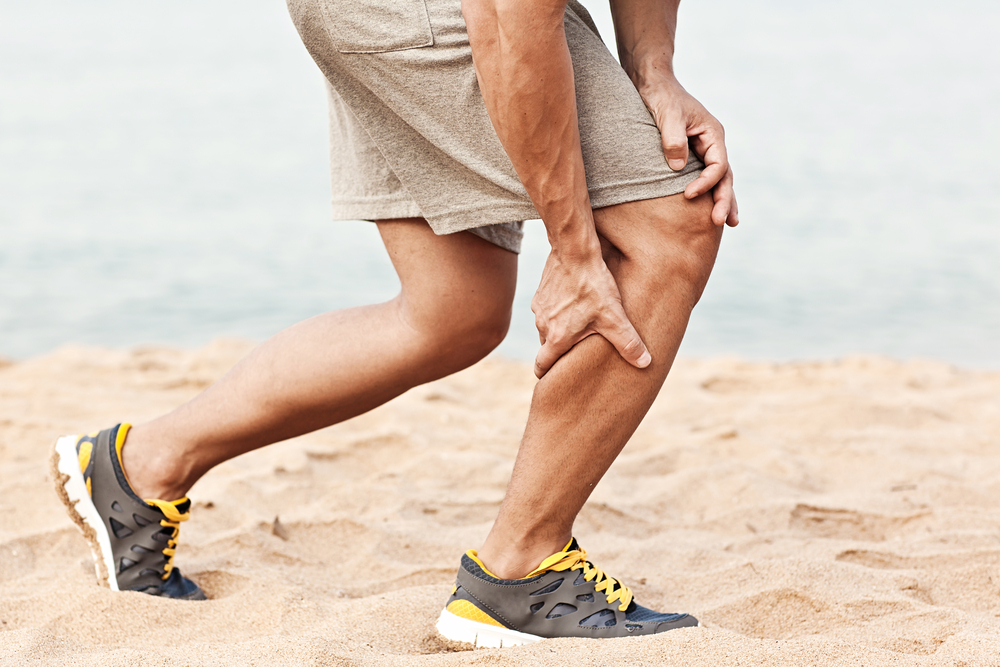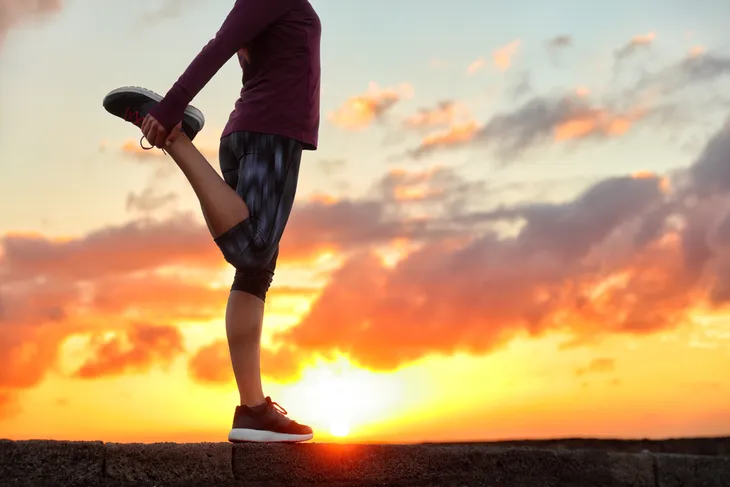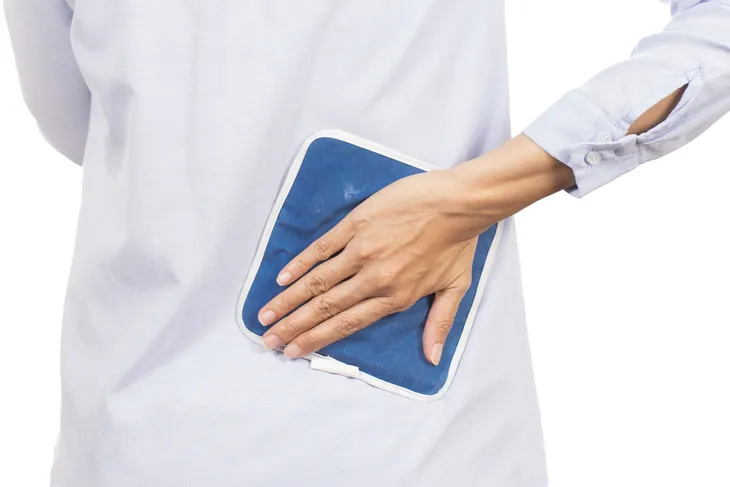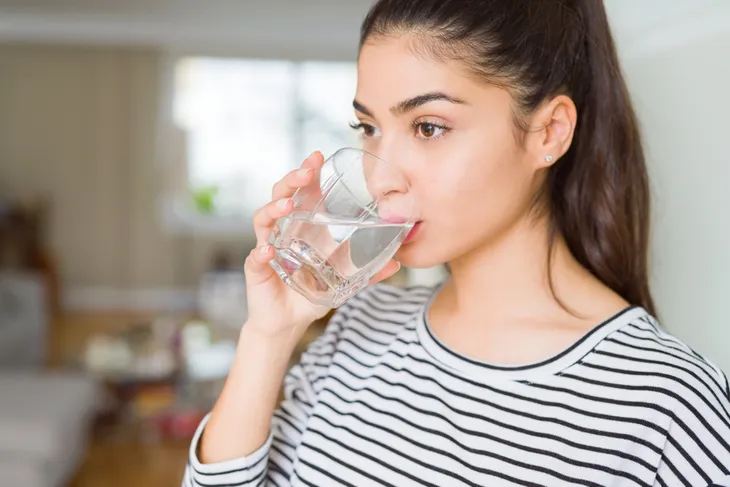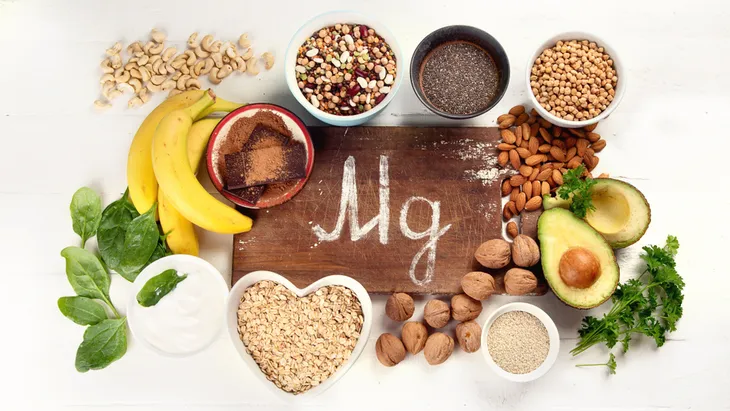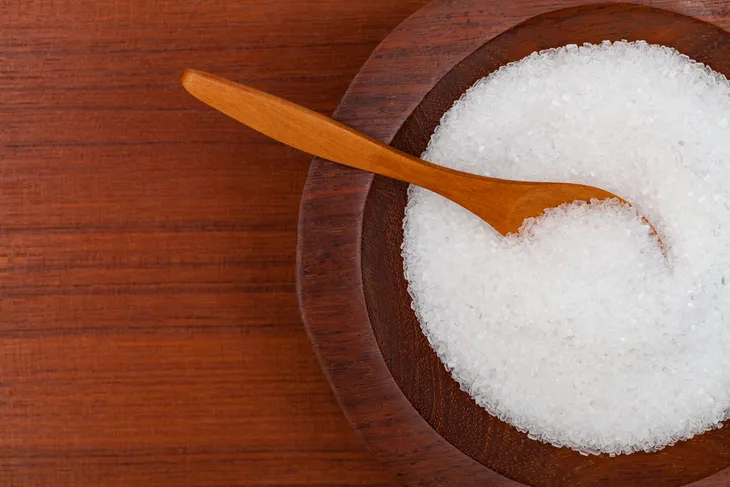Being woken up in the middle of the night by the pain of a muscle cramp in the calf or foot is something most people know all too well. Or perhaps one has occurred in the midst of an intense workout or evening run. Defined as “an involuntarily and forcibly contracted muscle that does not relax,” the cramps—which are sometimes referred to as “charley horses”—can be caused by many different things, such as poor circulation, muscle fatigue, dehydration, or as a side effect of certain medications.
Luckily, muscle cramps tend to last for only a brief period of time, ranging from a couple of seconds up to around 15 minutes. And with the help of these five home remedies, you’ll be back to your regular activities again in no time.
Stretch
Despite how painful the cramp may be, one of the best ways to help it pass is to stretch the muscle. The Mayo Clinic suggests placing your weight on the cramped leg and slightly bending the knee, while standing. If standing proves too painful, the source recommends sitting on the floor or in a chair and extending the cramped leg.
While less common, cramps can also occur in the back thigh (hamstring) or front thigh (quadriceps). For relief of a contracted hamstring, the Mayo Clinic says to try “pulling the top of your foot on the affected side toward your head while your leg remains in a straightened position.” For quadriceps spasms, they advise using a chair to assist with balance as you pull the foot of the cramped leg toward the backside.
Apply Heat or Cold
The heat of an electric heating pad or hot washcloth on the affected muscle can help to relax a cramp by increasing blood flow to the area. Best Health magazine recommends applying the heat in 20-minute intervals, with 20 minute breaks in between, until the cramp subsides.
Alternatively, try placing an ice pack on the cramped muscle and massaging it simultaneously. You can do this several times per day to assist with relief of any swelling and pain the spasm may have caused.
Hydrate
Since one of the most common causes of muscle cramps is dehydration, it’s possible to help one subside by consuming plenty of fluids—particularly water or a sports drink that contains electrolytes. You’ll have to practice more patience with this method, though, as Healthline says it may take longer than others to address the issue.
For those who are prone to regular spasms, staying hydrated is one of the most effective methods of prevention. The Mayo Clinic says this is because “fluids help your muscles contract and relax and keep muscle cells hydrated and less irritable.”
Restore Electrolytes
Frequent muscle cramps can also be an indication of an electrolyte imbalance within the body. Low levels of these minerals—which include potassium, sodium, calcium and magnesium—can prevent the muscles from contracting normally, causing spasms.
Should a cramp occur, try addressing it with food. Snack on magnesium-rich foods such as avocados, cashews or dark chocolate. Or eat high potassium foods like bananas, oranges and cantaloupes. Most dairy foods—milk, yogurt and cheese—can also be quickly consumed for an effective dose of calcium.
Apply Epsom Salt
Like with a heating pad or warm cloth, the warmth of a shower or bath can provide relief of a muscle cramp by encouraging blood circulation in the affected area.
Healthline says that applying magnesium on the outside of the body, through the use of Epsom salts, is another effective treatment often recommended by personal trainers, coaches and physical therapists. It can be put on a warm cloth and pressed against the cramped muscle, or added to a bathtub of hot water for soaking in.
